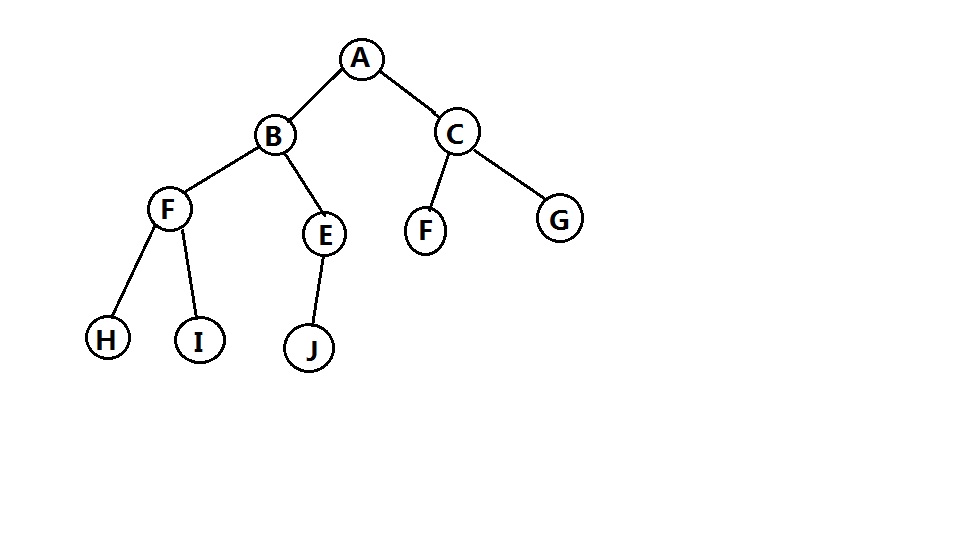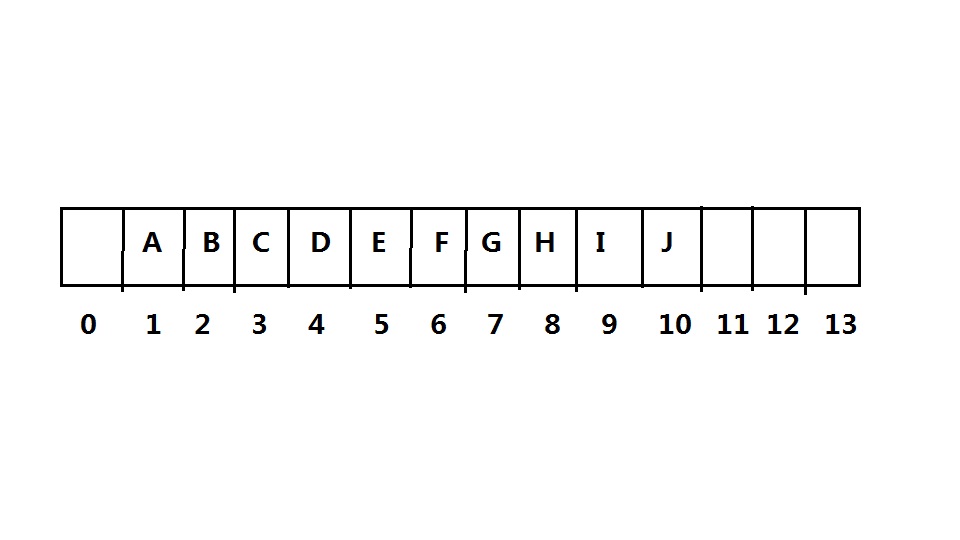优先队列由二叉堆实现是很普遍的事情。
下面我把二叉堆也称作为堆。
堆是一棵被完全填满的二叉树,一棵高为h的二叉树2h到2h+1-1个节点。这意味着完全二叉树的高时log N。
因为完全二叉树很有规律,所有它可以用一个数组来表示,而不需要指针

对于这棵树,我们可以这样表示。

对于数组中任意一个位置 i 上的元素,其左儿子在位置 2 i 上,右儿子在左儿子后的单元(2 i + 1 ),它的父亲则在位置( i / 2 )上。
1 #ifndef _BinHeap_H 2 3 struct HeapStruct; 4 5 typedef int ElementType 6 7 typedef struct HeapStruct *PriorityQueue; 8 9 PriorityQueue Initialize (int MaxElenments); 10 11 void Destroy(PriorityQueue H); 12 13 void MakeEmpty(PriorityQueue H); 14 15 void Insert(ElementType X,PriorityQueue H); 16 17 ElementType DeleteMin(PriorityQueue H); 18 19 ElementType Find(PriorityQueue H); 20 21 int IsEmpty(PriorityQueue H); 22 23 int Is Full (PriorityQueue H); 24 25 26 #endif // _BinHeap_H 27 28 struct HeapStruct{ 29 int Capacity; 30 int Size; 31 ElementType *Elements; 32 };
1 //对堆进行初始化 2 PriorityQueue Initialize(int MaxElements) 3 { 4 PriorityQueue H; 5 6 if(MaxElements < MinPQsize) 7 Error("Priority queue size is too small"); 8 9 H = malloc(sizeof( struct HeapStruct)); //H等于HeapStruct的内存大小,malloc是向系统申请一个内存空间。 10 if(H == NULL) 11 FatelError ("Out of space!!!"); 12 H->Elements = malloc((MaxElements+1)*sizeof(ElementType)); //申请一个内存空间,之后就可以像数组一样对Elements进行操作。 13 14 15 if(H->Elements == NULL) 16 FatalError("Out of space!!!"); //H没有子节点了。 17 18 H->Capacity = MaxElements; 19 H->Size = 0; 20 H->Elements[0] = MinDate 21 22 return H; 23 }
1 // 插入元素 2 3 void Insert(ElementType X, PriorityQueue H ) 4 { 5 int i; 6 if(IsFull(H)) 7 { 8 Error("Priority queue is full"); 9 return ; 10 } 11 for(int i = ++H->Size;H->Elements[i/2]>X;i /= 2) //采用冒泡,一个冒上去。 12 H->Elements[i] = H->Elements[i/2]; //如果它比它的父亲节点小的话,那么冒泡上去。 13 H->Elements[i] = X; 14 }
1 //删除最小值 2 3 ElementType DeleteMin( PriorityQueue H ) 4 { 5 int i,Child; 6 ElemenType MinElement , LastElement; 7 8 if(IsEmpty( H )) 9 { 10 Error("Priority queue is empty"); 11 return H->Elements[ 0 ]; 12 } 13 MinElement = H->Elements[ 1 ]; 14 LastElement = H->Elements[ H->Size-- ]; 15 16 for( i = 1;i * 2 <= H->Size; i = Child ) //将每一个子节点的最小值上升到原来的父亲节点。 17 { 18 Child = i * 2; 19 if( Child != H->Size && H->Elements[ Child+1 ] 20 < H->Elements[ Child ] ) 21 Child++; 22 23 if( LastElement > H->Elements[ Child ]) 24 H->Elements[i] = H->Elements[ Child ]; 25 else 26 break; 27 } 28 H->Elements[ i ] = LastElement; 29 return MinElement; 30 31 }
自己写的便于套用的一个堆
1 int arr[] 2 3 void inset(int x,int y) 4 { 5 int i; 6 for(i = y; arr[ i / 2 ] > x;i /= 2) 7 arr[ i ] = arr[ i / 2 ]; 8 arr[ i ] = x; 9 } 10 11 int deleteMin(int x) 12 { 13 int i, child; 14 int Min,last; 15 Min = arr[1],last = arr[ x ]; 16 for(i = 1; i * 2 <= x; i = child ) 17 { 18 child = i * 2; 19 if( child != x && arr[ child+1 ] 20 < arr[ child ] ) 21 child++; 22 if(last > arr[ child ]) 23 arr[ i ] = arr[ child ]; 24 else 25 break; 26 } 27 28 arr[ i ] = last; 29 return Min; 30 }